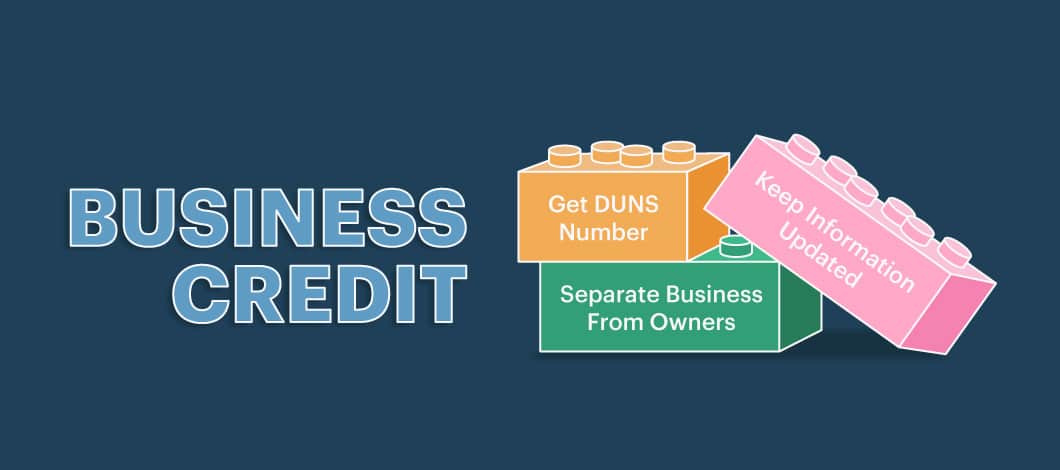Understanding Business Credit: How to Build and Qualify for It.
Business credit involves creating and maintaining credit for business purposes. Credit can be availed for loans, leasing equipment, as well as to obtain favorable payment terms with suppliers. In this article, we will delve into what business credit is, how to obtain it, the qualifications one has to possess to gain access to business credit, and how a new business can build its credit.

What Is Business Credit?
Business credit refers to the loan of money to a business, or goods and services on credit, based upon its prior financial history or creditworthiness, rather than that of its owner. Fairly different from personal credit, it is, nonetheless, employed in the determination of an organization’s dependability in terms of paying off its debts.
Why Business Credit Matters
Having strong business credit can be beneficial in several ways, including the following:
1. Access to Financing: Business credit scores are utilized to decide whether a company should be approved for a loan or line of credit.
2. Better Payment Terms: With good credit, suppliers and vendors are in a position to extend better payment terms to the business.
3. Business Growth: Good credit will enable your business to capitalize on growth opportunities since you can be sure you will have the resources you need.

How to Establish Business Credit
Business credit doesn’t happen overnight; however, once you do something with a certain strategy in mind, you will be able to establish sound business credit.
1. Incorporate Your Business
Your very first step towards establishing business credit is to legally distinguish your business from your personal finances. This typically involves:
Incorporating your business, or you can create an LLC.
Filing for an EIN, which is like a Social Security number for your business. Opening a business bank account and only using that account for business transactions.
2. Open Trade Lines
Trade lines are the credit extended to you by a supplier or a vendor that will report your payables to business credit bureaus. The building up of trade lines is the most significant process in generating business credit.
Deal with Suppliers Who Report Your Business Credit Bureaus
Pay Invoices on Time or Early To Build a Positive Pay History.
3. Obtain a Business Credit Card
Opening a business credit card is one of the ways to go about establishing your credit. Charge the card for various business expenses and pay off the balance in full every month in order not to incur interest charges and build a positive credit history.
Make sure to find a credit card that reports to business credit bureaus.
Keep utilization low to avoid negatively affecting your business credit score.
4. Monitor Your Business Credit
Check your business credit report frequently for any inaccuracies and updated information. You may estimate your score using a business credit calculator and know about the impact of certain actions on your score.
Immediately dispute everything incorrect in your credit report.
You can monitor your business credit score through the credit reporting agencies Dun & Bradstreet, Experian, and Equifax.
Business Credit Qualification
Qualifying for business credit involves a set of qualifying criteria that may vary based on the specific lender or credit provider.
1. Business Age
Among the key qualifiers in terms of business credit, the age of the business plays a very important role. It goes without saying that new businesses may find it harder to qualify for credit because they don’t have any credit history. However, even a new business can qualify over time once the steps for building credit are followed.
This being the case, older businesses with proven track records are considered to be less risky and; hence, qualified for higher amounts of credit.
2. Revenue and Profitability
Normally, lenders and creditors will look at your business’s financial health, including revenue, profitability, and cash flow.
Steady revenue growth and profitability give evidence that your business is healthy and give a good boost to your qualifying chances for credit.
Positive cash flow is an indication that your business can handle expenses and debts, therefore setting you up as a more desirable credit candidate.
3. Business Credit Score
The business credit score is perhaps the most significant qualification factor for business credit. Like personal credit scores, business credit scores range from 0 to 100. The higher the score, the lower the risk.
What is a credit score? A credit score is a numerical representation of how creditworthy a person is based on his or her credit history.
A good business credit score signifies timely bill payments, not much high debt, and frequent review of the credit report.
4. Industry Risk
Some industries are considered riskier than others by lenders, and thus sometimes have more difficult requirements when applying for business credit.
Some common high-risk industries that may be listed as a risk with more strict qualifications in getting business credit might include construction, restaurants, or any startup company in an emerging marketplace.
Other rather low-risk industries may include professional services or established retail businesses where the criteria for qualification for credit is easier to attain.

Business Credit for New Businesses
This may be a bit more challenging for a new business, but it is certainly achievable with the right approach.
1. Start Small
Start with the trade lines provided by the suppliers that report to credit bureaus.
Apply for a business credit card for startups or new businesses.
2. Use a Business Credit Builder
Some companies offer business credit builder programs, which allow new businesses to start building credit. These programs will take you through the steps involved in building credit and often report to credit bureaus.
First-time businesses must start by applying for smaller credit amounts or dealing with vendors that extend credit accounts with less strict qualifications.
Research those business credit builder programs that best fit your needs for your business and financial goals.
3. Personal GuaranteeAB
In some cases, especially when your business is new and has no credit history, you are required to give a personal guarantee while applying for business credit. That means in case your business is not able to pay its dues, you take it as your personal responsibility.
Use personal guarantees very carefully as it will affect your personal credit score in case your business defaults.

Business Credit Score: What’s Good?
A business credit score normally ranges from 0 to 100, where anything above 75 is generally regarded as excellent. For ongoing access to finance and good credit terms, there is a need to maintain a good score.
Some Tips for Maintaining a Good Business Credit Score
1. Pay bills on time: Late payments will hurt your score.
2. Keep debt levels low: High levels of debt may show that you are a risk to the lender.
3. Check your credit: report regularly to ensure all information is accurate and up-to-date.
Conclusion
First, an understanding of what business credit is, how to obtain it, and what qualifications one needs to avail of it forms a very critical component of success for any growing business. Establishing a strong credit profile takes time and due diligence, but benefits like access to financing, better payment terms, and seized growth opportunities are well worth the effort. From the new business just starting out to the established company wanting to expand, all steps listed here, down to maintaining a good business credit score, will position the business for whatever kind of long-term success is desired.

Leave a Reply